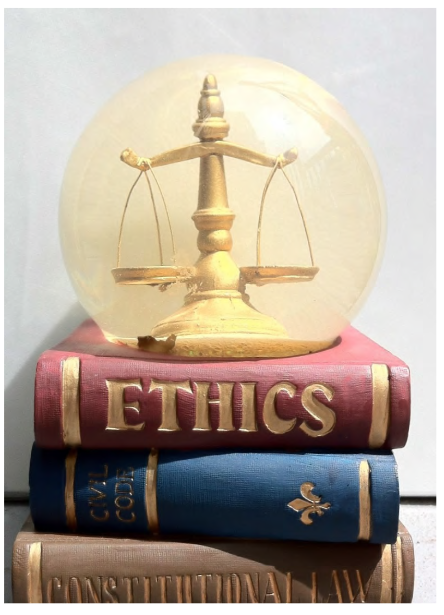By Tim Redmond
The San Francisco Civil Grand Jury is the latest group in this city to have lost faith in the ability of the local officials to enforce political corruption laws. And while Civil Grand Jury reports have no force and are often ignored, this one has touched a nerve for a lot of people who have tangled with the city’s nonfunctional ethics system.
In a fairly scathing report last week, largely ignored by the news media, the jury noted that “officials at all levels have impeded actions intended to establish a culture of ethical behavior.”
The structure of the Ethics Commission came in for the most intense criticism: “Although the commission appears to be the primary enforcement authority, it has substantially less power than other city and state officials to actually punish wrongdoers. Its investigative powers, by requiring confidentiality of its investigations, muzzle it from publicly criticizing questionable activities.”
In fact, the report suggests the enforcement power be removed from the city agency and turned over to the state’s Fair Political Practices Commission, at least for a trial period.
Among the enforcement problems that the jury found:
n Campaign contributions that violate the law are supposed to be forfeited to the city; instead, they are routinely just returned to the donor.
n State law bans lobbyists from directly giving money to the politicians whose votes they seek to influence. Not so in San Francisco, where lobbyists gave $135,000 in 2013 to elected officials and candidates.
Help us save local journalism!
Every tax-deductible donation helps us grow to cover the issues that mean the most to our community. Become a 48 Hills Hero and support the only daily progressive news source in the Bay Area.
n There’s little oversight or transparency for the acts of public officials that are taken through private email accounts or cell phones – even when official business is being conducted: “Drafts of legislation will often zip around the Interned to be edited by lobbyists and other interests without transparency.”
nThe city has no policy mandating that officials keep emails and text messages related to city business, and there is no plan to make sure that critical public records aren’t simply kept hidden or deleted on a routine basis.
nThe law requires top officials, including the mayor, to keep and make public an appointments calendar – but many calendar entries don’t met those requirements. “As a result, it is not possible to crosscheck lobbyists’ reports on their meetings with city officials with a calendar.”
n The Ethics Commission has stuck so closely to the letter of the law that it has “not taken an active role in questioning the propriety of actions that skirt the edges of legality. This … can remind public officials that they can be called to account for the appearance of impropriety.”
The jury also suggested a change in the law to provide private citizens the right to sue to enforce the ethics laws, with a mandatory award of attorney’s fees. These “private rights of action” work well in other areas, including environmental and housing law.
n Corporations have figured out how to get around the laws banning direct contributions to candidates: “Corporations may not contribute directly to a candidate but may instead contribute to a business association that contributes to a candidate, or to a nonprofit that spends of behalf of a candidate, or to another committee controlled by the candidate or officeholder, or through an independent expenditure committee.
In fact, “corporate money is being funneled into local campaigns through a web of nonprofit organizations. The Jury cannot determine whether the main effect is to hide the true source of contributions or if this shields illegal contributions from disclosure.” And Ethics has done nothing to address the problem.
n A group of people who aren’t registered lobbyists or campaign consultants provide “strategic advice” on influencing City Hall, but don’t have to register or disclose anything.
n The laws are so vague that it’s almost impossible to convict someone of official misconduct in ethics cases: “In recent years …. Cases have been dismissed because the laws under which the defendant was charged were found to be vaguely written.”
n Nobody ever gets sanctioned for violating the Sunshine Ordinance.
The jury acknowledged that the laws around campaign finance have changed radically in the past few years, and that the local Ethics Commission, with limited staff, can’t keep up. But the structure of city laws, and a climate of tolerance for political sleaze, makes any enforcement of anything other than the most obvious and blatant cases difficult.
The panel suggested that the mayor appoint a blue-ribbon panel to look at sunshine-law enforcement, which is fine except that this mayor will never appoint anyone who supports that concept. It also suggested that the Sunshine Ordinance Task Force hire hearing officers instead of holding all hearings before the entire panel, which makes a whole lot of sense.
The report notes a fascinating case study, which I had forgotten about. In 2000, the voters approved Prop. J, which banned any city official from receiving a campaign contribution, gift, or offer of employment from anyone who had received a “public benefit” by the action of that official.
In other words: No campaign money from developers who got favorable zoning, no gifts or sweet jobs from city contractors … none of the most obvious kind of kickbacks.
Three years later, the Ethics Commission proposed a series of “reform” measures that included quietly eliminating that law.
That’s how things work in this city. It’s why so much of what happens is so corrupt. If the supervisors just took all of the recommendations in this report and put them in a ballot measure, the city would probably be a better place.
Anyone taking odds?





